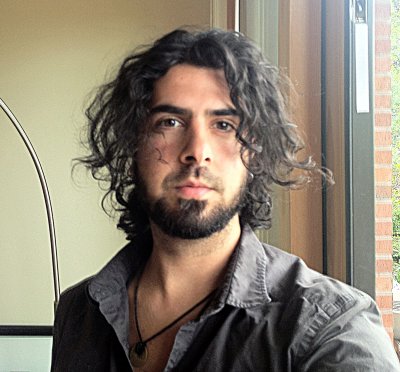EUGENE, Ore. — (June 18, 2012) — Religions are thought to serve as bulwarks against unethical behaviors. However, when it comes to predicting criminal behavior, the specific religious beliefs one holds is the determining factor, says a University of Oregon psychologist.
The study, appearing in the Public Library of Science journal PLoS ONE, found that criminal activity is lower in societies where people's religious beliefs contain a strong punitive component than in places where religious beliefs are more benevolent. A country where many more people believe in heaven than in hell, for example, is likely to have a much higher crime rate than one where these beliefs are about equal. The finding surfaced from a comprehensive analysis of 26 years of data involving 143,197 people in 67 countries. "The key finding is that, controlling for each other, a nation's rate of belief in hell predicts lower crime rates, but the nation's rate of belief in heaven predicts higher crime rates, and these are strong effects," said Azim F. Shariff, professor of psychology and director of the Culture and Morality Lab at the UO. "I think it's an important clue about the differential effects of supernatural punishment and supernatural benevolence. The finding is consistent with controlled research we've done in the lab, but here shows a powerful 'real world' effect on something that really affects people -- crime."
"The key finding is that, controlling for each other, a nation's rate of belief in hell predicts lower crime rates, but the nation's rate of belief in heaven predicts higher crime rates, and these are strong effects," said Azim F. Shariff, professor of psychology and director of the Culture and Morality Lab at the UO. "I think it's an important clue about the differential effects of supernatural punishment and supernatural benevolence. The finding is consistent with controlled research we've done in the lab, but here shows a powerful 'real world' effect on something that really affects people -- crime."
Last year, in the International Journal for the Psychology of Religion, Shariff reported that undergraduate students were more likely to cheat when they believe in a forgiving God than a punishing God.
Religious belief generally has been viewed as "a monolithic construct," Shariff said. "Once you split religion into different constructs, you begin to see different relationships. In this study, we found two differences that go in opposite directions. If you look at overall religious belief, these separate directions are washed out and you don't see anything. There's no hint of a relationship."
The new findings, he added, fit into a growing body of evidence that supernatural punishment had emerged as a very effective cultural innovation to get people to act more ethically with each other. In 2003, he said, Harvard University researchers Robert J. Barro and Rachel M. McCleary had found that gross domestic product was higher in developed countries when people believed in hell more than they did in heaven.
"Supernatural punishment across nations seems to predict lower crime rates," Shariff said. "At this stage, we can only speculate about mechanisms, but it's possible that people who don't believe in the possibility of punishment in the afterlife feel like they can get away with unethical behavior. There is less of a divine deterrent."
He added, however, that these are correlational data, and so caution should be taken with the conclusions. Though Shariff and study co-author Mijke Rhemtulla of the Center for Research Methods and Data Analysis at the University of Kansas tried to account for obvious alternative explanations, more research is needed to explore other interpretations for the findings.
About the University of Oregon
The University of Oregon is among the 108 institutions chosen from 4,633 U.S. universities for top-tier designation of "Very High Research Activity" in the 2010 Carnegie Classification of Institutions of Higher Education. The UO also is one of two Pacific Northwest members of the Association of American Universities.
Media Contact: Jim Barlow, director of science and research communications, 541-346-3481, jebarlow@uoregon.edu
Source: Azim F. Shariff, assistant professor of psychology, 541-346-4963, shariff@uoregon.edu
UO Science on Facebook: http://www.facebook.com/UniversityOfOregonScience
Note: The University of Oregon is equipped with an on-campus television studio with satellite uplink capacity, and a radio studio with an ISDN phone line for broadcast-quality radio interviews. Call the Media Contact above to begin the process.
###